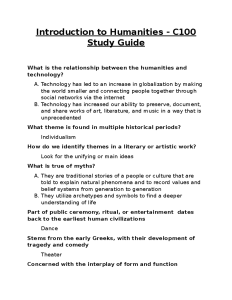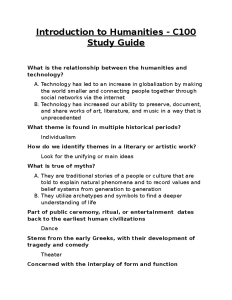“Severance,” the acclaimed Apple TV+ series, has captivated audiences with its unique and thought-provoking premise. Following a group of office workers who willingly undergo a radical procedure separating their work and personal identities, the show raises crucial questions about work-life balance, free will, and identity. As the gripping narrative unfolds, viewers are left pondering the deeper implications of living as two distinct selves. The buzz surrounding “Severance” has only intensified as it wrapped up its second season, leaving fans intrigued about what to expect in the forthcoming “Severance Season 3.” Notably, producer Nicky Weinstock’s insights, such as those shared in a recent interview, highlight how the series resonates with the complex reality of modern-day life and the inherent struggle many face in reconciling their work and personal lives.
The innovative series “Severance” has become a focal point of discussion among those fascinated by contemporary television narratives. This show, now streaming on Apple TV+, takes an unconventional approach by exploring the notion of segmented identities in the workplace. By depicting the lives of individuals who have opted for a procedure that divides their consciousness, it cleverly examines themes of autonomy, self-concept, and the ongoing battle for balance between professional responsibilities and personal happiness. As viewers anticipate revelations in “Severance Season 3,” the conversation around its impact on our understanding of identity and the intricate dynamics of modern work-life continues to expand. It stands as one of the most significant work-life balance TV shows today, provoking thoughtful dialogue about the nature of being human in a rapidly changing world.
Exploring Work-Life Balance in ‘Severance’
The theme of work-life balance is intricately woven into the narrative of ‘Severance’, making it a mirror for our society’s ongoing struggle to juggle professional and personal lives. The show cleverly presents a dystopian method for addressing this challenge: the procedure that bifurcates one’s consciousness. This unique premise allows viewers to delve into the psychological and emotional repercussions of living a divided existence. As fans of work-life balance TV shows might note, ‘Severance’ raises poignant questions about identity and self-worth in an increasingly demanding work environment.
Additionally, this exploration resonates deeply with contemporary viewers who may find themselves grappling with similar dilemmas in real life. In a world where the boundaries between work and home are becoming increasingly blurred, ‘Severance’ serves as a poignant commentary on how individuals might feel fragmented, embodying different personas at work versus at home. The show strikes a chord with audiences seeking to understand the complexities of their identity in an era defined by rapid innovation and changing social norms.
Nicky Weinstock’s Insight into ‘Severance’
Nicky Weinstock’s involvement in ‘Severance’ provides valuable insights into the creative journey and the elements that make the show so captivating. His perspective sheds light on the adaptation of a unique concept from script to screen, demonstrating how compelling ideas can transcend the conventional Hollywood landscape. In his interview, he emphasizes the rarity of encountering scripts that offer both originality and depth, which is what drew him to ‘Severance’. With the influx of work-life balance TV shows in the market, it’s refreshing to see a narrative that pushes boundaries and ignites conversation about the human condition.
Weinstock’s reflections also highlight the collaborative nature of filmmaking; the synergy between writers, producers, and actors plays a vital role in bringing such a distinct storyline to life. The decision to cast acclaimed actors like John Turturro and Patricia Arquette not only enhances the show’s appeal but also elevates the exploration of identity and duality within the context of the series. By focusing on this collaborative spirit, Weinstock underscores the importance of innovative storytelling in today’s entertainment landscape.
What Lies Ahead for ‘Severance’ Season 3
As fans eagerly await the arrival of ‘Severance’ Season 3, speculation about the storyline and thematic direction abounds. Nicky Weinstock hints that the upcoming season will diverge significantly from its predecessors, promising to explore the expansive nature of the severance concept even further. This shift in narrative approach aligns with the overarching themes of discovery and personal evolution, reflecting the show’s willingness to navigate the complexities of identity. It’s anticipated that this season may introduce new characters and scenarios that complicate the existing paradigm, addressing viewer concerns about free will and the ramifications of living a bifurcated life.
Furthermore, with the show’s already established commentary on the human experience post-pandemic, Season 3 could undertake a deeper exploration of societal norms and the quest for authenticity. Given how the previous seasons mirrored cultural sentiments, it’s likely that the storytelling will resonate with ongoing discussions surrounding trust and authority. As anticipation builds, fans remain committed to unraveling the mysteries of ‘Severance’, captivating audiences with its blend of psychological drama and philosophical inquiry.
The Impact of ‘Severance’ on Identity Exploration
‘Severance’ serves as a profound examination of identity and self-perception in modern society. The concept of separating one’s work persona from their personal identity prompts viewers to reflect on their own lives. Many individuals experience a similar duality, grappling with the expectations placed upon them in their professional arena versus those in their private lives. This compelling portrayal resonates with audiences who question how well they truly understand themselves amidst societal pressures—an aspect that is increasingly relevant during times of global uncertainty.
In reality, the struggles depicted in ‘Severance’ offer a relatable lens through which we can analyze our lives. The idea of feeling like two people echoes a common sentiment in contemporary work environments, where employees often find themselves compartmentalizing their roles. This exploration of identity not only fuels engaging dialogue among fans but also challenges viewers to contemplate their authenticity and the forces that shape their everyday realities. Such discussions serve as the backbone of many work-life balance TV shows, making ‘Severance’ a powerful addition to this genre.
The Unique Concept Behind ‘Severance’
The innovative premise of ‘Severance’ stands out in a crowded television landscape, marking a significant departure from traditional narratives. Designed to provoke thought, the show’s storyline revolves around individuals who voluntarily divide their consciousness, prompting questions about autonomy, memory, and the essence of self. As Nicky Weinstock notes, the originality of this idea is what attracted key players in the entertainment industry. The show’s approach to identity not only captivates audiences but also encourages broader conversations about personal agency in a world where our professional and personal selves often overlap.
In the realm of television, originality is a rare commodity. By presenting a story that challenges viewers to consider the implications of such a radical concept, ‘Severance’ pushes boundaries in storytelling. The series invites audiences to reflect on their own experiences while simultaneously engaging with its unsettling narrative. As viewers discuss the moral and philosophical implications of severance, they inevitably confront the fundamental question of what it means to be truly aware of oneself—an exploration that resonates well beyond the confines of the screen.
Cultural Reflections in ‘Severance’
‘Severance’ has become more than just a TV show; it acts as a cultural commentary on contemporary life, particularly in the aftermath of global events like the COVID-19 pandemic. With themes that touch on isolation, confusion, and the struggle for personal identity, the series reflects the collective experiences of many viewers during challenging times. The narrative’s ability to encapsulate the anxiety of modern existence resounds deeply, prompting spirited discussions around its themes and messages.
This cultural relevance is further strengthened by the show’s timing, as it debuted when many were reevaluating their work-life dynamics. By exploring the notion of severance, the show taps into widespread sentiments regarding the changing landscape of work and personal life. Audience members find themselves drawn to the series precisely because it reflects issues they face in their daily lives, enhancing its impact and fostering a community of engaged viewers.
The Surprising Popularity of ‘Severance’
The rapid rise in popularity of ‘Severance’ can be attributed to its unique storytelling and the universal themes it explores. While its premise may seem niche at first glance, the show’s intricate exploration of the human psyche has resonated with a wide audience. Both casual viewers and critics alike are captivated by how the series tackles heavy topics such as identity, free will, and the dualities within ourselves. This broad appeal is a testament to the authors’ abilities to blend complex philosophical inquiries with engaging plotlines.
Moreover, the show’s unexpected success is a significant milestone for alternative narratives within the television landscape. ‘Severance’ stands as a remarkable example of how audiences are craving more thought-provoking content, challenging the traditional boundaries of storytelling. This success not only underscores viewers’ desires for innovation in television but also paves the way for other unconventional series that tackle similarly profound issues.
What Makes ‘Severance’ Stand Out
‘Severance’ distinguishes itself through its ambition and originality, creating a narrative that captivates viewers from the outset. Unlike typical stories about work-life balance, this show ventures into uncharted territory, exploring the psychological ramifications of its characters’ decisions. By utilizing a thought-provoking premise, the series not only entertains but also encourages critical reflection on one’s identity and choices. As viewers watch the intricacies of division unfold, they are compelled to ponder their own lived experiences in parallel.
The narrative’s ability to blend surrealism with social commentary is a crucial aspect of its impact. In a world increasingly dominated by discussions about well-being and mental health, ‘Severance’ offers a platform for examining these themes through a unique lens. As such, the series stands out not merely for its plot but for its willingness to confront difficult subjects head-on, reinforcing its position as a pivotal work in contemporary television.
Anticipating the Future of ‘Severance’
As ‘Severance’ gears up for its next season, audiences are filled with anticipation regarding the evolving narrative. Fans eagerly speculate about where the storyline will venture, particularly in light of the cliffhanger that concluded Season 2. The mixture of suspense and curiosity showcases the show’s capacity to keep viewers engaged while exploring profound questions about identity and choice. As Nicky Weinstock mentions, the expansiveness of the severance concept allows for infinite narrative possibilities, crafting a rich tapestry for future exploration.
Looking ahead, the show’s creators have a unique opportunity to delve deeper into the themes that have captivated audiences thus far. With the ongoing inquiry into the complexities of self, it’s likely that Season 3 will further challenge our perceptions of reality and personal identity. As societal expectations continue to shift, ‘Severance’ remains poised to provide meaningful reflections of contemporary life’s struggles, making it a highly anticipated return in the world of television.
Frequently Asked Questions
What are the key themes explored in Severance on Apple TV?
Severance on Apple TV delves into themes of work-life balance, identity, and the duality of human existence. The show creatively showcases how office workers live disjointed lives through the concept of a procedure that creates an ‘innie’ and an ‘outie’, exploring the internal conflicts and mysteries that arise from this separation.
How does Severance reflect modern struggles with identity and work-life balance?
Severance encapsulates the contemporary struggle with identity by vividly depicting characters who maintain separate personas in their professional and personal lives. This portrayal resonates with viewers, highlighting the conflict many face between their work roles and personal identities, especially in today’s fast-paced environment.
Will there be a Severance Season 3, and what can we expect?
Yes, Severance Season 3 is confirmed! Following the shocking cliffhanger at the end of Season 2, viewers can expect a continuation that further explores the expansive concept of severance, diverging from the claustrophobic focus of the first season and the broader narrative of the second.
What did Nicky Weinstock say about the origin of Severance?
Nicky Weinstock, co-producer of Severance, commented on the show’s unique origin, noting that it started with an unproduced script by Dan Erickson which gained traction for its originality. The show’s appeal was immediately recognized, allowing it to attract notable actors and creatives in Hollywood.
How does Severance address the issue of free will?
Severance intricately weaves the theme of free will into its narrative by showcasing characters who have chosen to undergo a procedure limiting their consciousness. This fascinating dynamic raises questions about choice, autonomy, and the essence of being in both personal and professional realms.
How has the reception of Severance changed since its first season?
Since its premiere, Severance has evolved from a niche show into a widely discussed phenomenon, particularly resonating with audiences reflecting on post-COVID life. Its exploration of identity and societal uncertainty has made it a compelling lens through which viewers examine their own lives.
What makes Severance a standout in the genre of work-life balance TV shows?
Severance stands out in the realm of work-life balance TV shows due to its innovative premise that separates an individual’s consciousness, examining the fractured reality many face. Unlike typical portrayals, it takes a surreal approach to address profound questions about identity, reality, and personal agency.
What is the significance of the cliffhanger at the end of Severance Season 2?
The cliffhanger at the end of Severance Season 2 serves to heighten suspense for viewers, setting the stage for deeper explorations of character choices and the implications of severance on their lives. It opens up numerous narrative directions for Season 3, promising an expansion of the show’s already rich themes.
| Key Points |
|---|
| The Apple TV+ show “Severance” explores the duality of consciousness through a procedure that separates office workers’ identities into two personas: the ‘innie’ and the ‘outie’. |
| The show’s themes include work-life balance, free will, identity, and the internal conflict experienced by individuals. |
| Produced by Nicky Weinstock, a Harvard alum, “Severance” began from a unique script that gained excitement without the backing of known writers or actors. |
| Season 1 of “Severance” reflects feelings of claustrophobia and confusion experienced during the COVID-19 pandemic. |
| The conclusion of Season 2 raised new stakes and questions, setting the stage for a diverse and expansive third season. |
Summary
The Severance TV show encapsulates the struggle faced by many individuals trying to balance their professional and personal identities. With its innovative premise and psychological depth, it resonates widely during these uncertain times. Fans eagerly await how the story unfolds, especially after the cliffhanger from Season 2, which promises to delve deeper into the complexities of human nature and societal questions. As the anticipation builds for Season 3, the ongoing discussion about the themes presented in Severance continues to thrive, indicating the show’s impactful narrative and cultural relevance.




